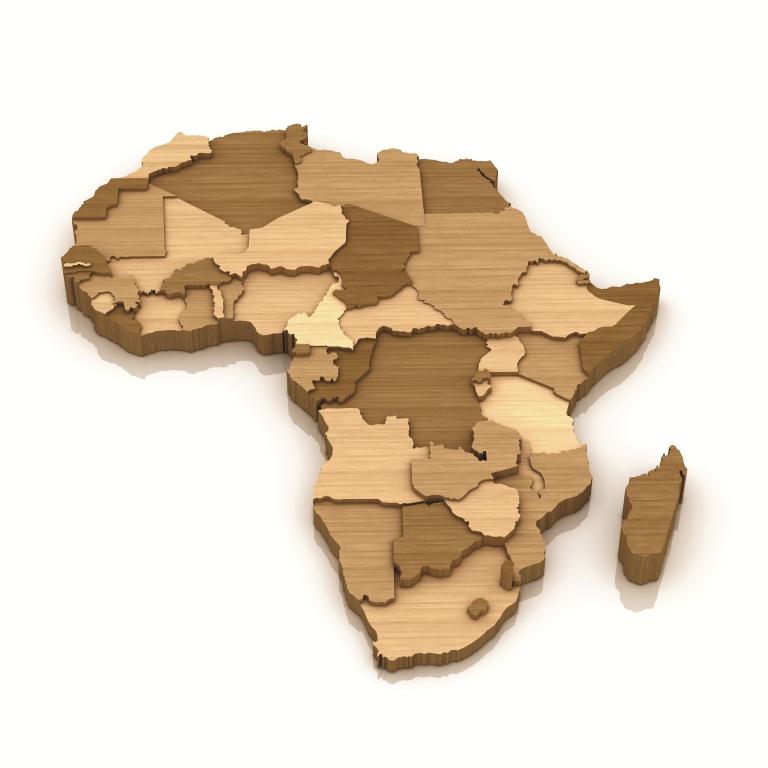Africa is charting a new path towards a single continental market – and it’s going to be an economic revolution.
Nigeria’s President Muhammadu Buhari recently drew the world’s attention to the anticipated single market during a visit to Ankara where he said, “In Africa, we are on the threshold of finalizing negotiations to establish the first ever single market for trade in goods and services on our continent, in the Continental Free Trade Area for Africa.”
What is the Continental Free Trade Area (CFTA) for Africa and how will a single market unleash Africa’s economic might?
According to the African Union, the CFTA will create a single market, which enables the free movement of goods and services, businesspersons and investments within 54 African countries with 1.2 billion people and a combined GDP of over $3.5 trillion. The agenda is extended to broaden intra-African trade, and accelerate regional and continental integration processes.
Africa has the least percentage (18%) of intraregional trade, lagging far behind the 70% in Europe, 55% in North America, 45% in Asia, and 35% in Latin America. The implications are nothing short of jeopardy. However, analysts state that Africa is marching forward, citing the CFTA, among other developments, as a remarkable indication.
Loading...
An estimate by the United Nations Economic Commission for Africa notes, “The CFTA could increase trade between African countries by as much as $35 billion, an increase of more than 50% from current levels.”
The CFTA will also make Africa the world’s largest free-trade area.
Economic development is impossible without trade. It is a missed opportunity that African states do not trade enough with themselves.
As much as the CFTA will disrupt demand and supply barriers, a single market will help align trade policies, regulations and institutions of all African countries to promote continental trade that will benefit businesses, consumers and governments. This will lead to structural transformation, industrial development, diversification, productivity boost, and new wealth that will give Africa a competitive edge.
READ MORE: Why Is West Africa Less Attractive To Investors?
“The single market for Africa policy can push regional trade levels from up from 15% to 25% within a decade and this will in turn significantly increase and strengthen the continent’s annual economic growth, create wealth more inclusively and reduce poverty,” says Oby Ezekwesili, the former Vice President of Africa at the World Bank.
Africa’s aviation sector contributes around $72.5 billion in GDP and creates more than 6.8 million jobs. This is despite the challenges that abound in Africa’s 54 countries, dealing with 54 different civil aviation authorities and 54 sets of rules relating to travel, trade and tourism.
Never mind the ease of doing business, it can be a nightmare trying to travel to another African country with all the red tape. Imagine the massive gains if all 54 sets of rules were collapsed into one, dealing with only one regulatory framework and being able to move goods and services in one market.
“Regulation, or more accurately, de-regulation, has the opportunity to turbo-charge African aviation, through improved market access across the continent,” says Segun Demuren, Managing Director and CEO of EAN Aviation.
“The immediate impact in just 12 out of 54 key markets across Africa would provide a potential 5 million extra passengers a year with the opportunity to travel and trade and create an additional 155,000 jobs and potentially increase the GDP of those 12 countries by an additional $1.3 billion. That’s just a quarter of the countries; imagine the impact across the continent,” adds Demuren.
READ MORE: Is China Really Helping Africa?
One of the key problems hindering intra-African trade is the tariff barrier. It makes trade extremely difficult and raises the price of imported goods as well as transaction costs.
To jump-start Africa’s economic potential, a tariff reduction or total elimination of custom duties levied on imported goods from within the continent is required.
“The CFTA will create a more stable trade regime, continental market access, huge increase in investment rate, and trade liberalization – all which are strong catalysts for economic prosperity and sustainable development,” says Benedict Peters, Founder and CEO of Aiteo Group.
With a single market African economies will be on the move. – Written by Shakir Akorede, writer, agenda contributor to the World Economic Forum, and founder of 501Words
Loading...
